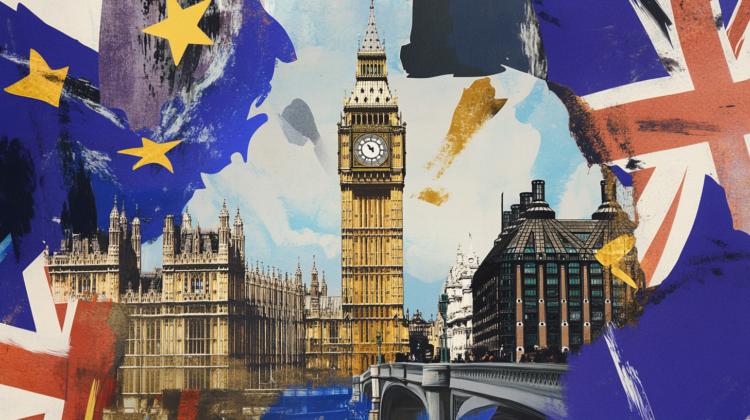Every UK poll now shows a majority longing to rejoin the EU – but can Britain overcome its Brexit scars?

Good news! For two years now every single UK poll has shown a majority now want to return to the EU. Of course they do, since every reliable source shows the continuing damage done by Brexit in almost every sphere. Those promised “Brexit benefits” are nowhere to be seen. As for regained sovereignty? You can’t see it, touch it or eat it, but loss of influence across both the channel and the Atlantic is hard even for Brexiters to ignore. Immigration, underlying cause for that vote, has risen, losing Europeans but increasing migrants from distant countries. Did they mean that?
Despite Britain’s ferociously pro-Brexit media, few voters can avoid hearing at least some of the true effects of what they voted for: £27bn has been lost in EU trade in the first two years. British goods exports have lost 6.4% a year, and 40,000 finance jobs have departed for the EU from the City. British food exports to the EU have fallen by £3bn a year according to the Centre for Inclusive Trade Policy. Brexit costs the UK £1m an hour says the Office for National Statistics. The Office of Budget Responsibility says GDP would be 5% higher had we stayed in the EU. Those who don’t read economic news may have noticed that Brexit trade barriers cost each household £210 extra for food. And they will certainly have noticed queuing at European borders while EU citizens sail through the lane we used to use.
Now we have a government and House of Commons overwhelmingly filled with pro-EU MPs, surely it’s time to start rowing back towards Calais? How perverse it seems that Britain’s passionately pro-EU prime minister adamantly refuses any hint of rejoining, not the EU, the customs union nor the single market, and not even EFTA. Why?
Because wise British politicians no longer trust our volatile and fickle voters. They have learned the hard lesson, wary of the optimism bias that makes pro-Europeans seize with delight on every hopeful opinion poll. That same optimism bias led David Cameron to call the disastrous Brexit referendum, believing that as prime minister he could ensure “remain” would win against those “leave” supporters he arrogantly dismissed as “fruitcakes, loonies and closet racists”.
If there was another referendum to overturn the last, the same claque of right-wing Brexit media barons, such as Rupert Murdoch, owner of 40% of the British press readership, would kick-start their mendacity machines again. This time joining conditions would be harsher: Britain has lost its lucrative EU rebate and other favours it had negotiated. This time the UK would have to abandon sterling to join the euro, and no doubt many other conditions that would be presented by Brexiters as slavery to Brussels’ diktat. No-one wise would trust public opinion to stay solid. Referendums are the very worst kind of democracy, encouraging the basest political instincts. Let’s not do that again, ever.
That’s why, instead, step by step, the UK government is tiptoeing towards a “reset” with the EU, quietly as every step is greeted by the Tory media as a “Brexit betrayal”. Rachel Reeves, Chancellor of the Exchequer, the first since Brexit to attend a meeting of EU finance ministers, told them last month, “Division and chaos defined the last government’s approach to Europe.
It will not define ours. We want a relationship built on trust, mutual respect, and pragmatism, a mature, business-like relationship…”. Behind the scenes emissaries are talking substance: Keir Starmer’s chief of staff made a low-profile visit to Brussels before Christmas. Starmer’s meeting with President Macron last week was his seventh since taking office, with a dinner at Chequers, the PMs country official residence. They spoke of Ukraine, growth, defence, energy – and of course, the UK-EU “reset”.
Remainers have built up great hopes – optimism bias again – but the reset may disappoint them unless Starmer relaxes his strict red lines. Brussels rightly warns there can be no cherry-picking bits of a single market we refuse to join. Britain wants barriers down, trade eased especially for food, professional qualifications recognised, musicians allowed to travel to perform freely across the EU. So far, the answers sound like “Non”. Not without things Brussels wants which include EU students attending UK universities to pay the same fees as British students pay, and a youth mobility scheme for under 30’s to travel and work freely: so far UK answers sound like “No”. But why?
The concern is that Starmer is too fearful of “Brexit betrayal” accusations. Ignore them, as the proposed youth mobility scheme is, in fact, highly popular with most British people in all polls. Other obstacles will include fishing rights coming up for renegotiation soon, of minimal economic importance to either country but arousing high-voltage political emotion on both sides of the channel. Farming disputes likewise.
But stop right there. These trifling issues are pathetically trivial to anyone standing back and looking at the perilous state of the world. Donald Trump threatens to do terrible things, though no-one knows yet what or how. The eurozone economy staggers, as does Britain’s. Elon Musk’s monster money menaces European democracies, encouraging the storm-clouds of the far right. If Putin is allowed anything approaching victory in Ukraine, Europe is in danger: it’s unclear if NATO survives. Germany and France are in political turmoil. The planet last week reached the perilous 1.5 degree overheating we were pledged to prevent, with no sign of a global politics to avert it boiling over.
This is no time for anything but unity among those Europeans who do fear for democracy, who know they must stand together against whatever the Trump era may threaten. Social democrats have been weak in fighting back until now. No more, from now on.
This is a joint publication by Social Europe and IPS-Journal
Polly Toynbee is a commentator for The Guardian newspaper. Her latest books are a memoir, ‘An Uneasy Inheritance: My family and other radicals’ and 'The Only Way is Up: how to take Britain from austerity to prosperity'.
